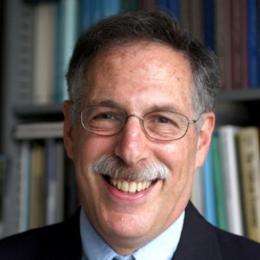Labour market specialists win Nobel Economics prize

Three labour market specialists, including one nominated but blocked for the US Federal Reserve board, won the 2010 Nobel Economics Prize on Monday for analysing and helping tackle unemployment.
The Nobel jury said the work of Peter Diamond and Dale Mortensen of the United States and British-Cypriot Christopher Pissarides helped resolve puzzles such as why people remained unemployed despite a large number of job openings.
It lauded the three economists "for their analysis of markets with search frictions," which helps explain how unemployment, job vacancies and wages are affected by regulation and economic policy.
Such labor analysis was likely a primary factor in President Barack Obama's decision early this year to nominate Diamond to one of seven seats on the Federal Reserve's board of governors and its Federal Open Market Committee.
Diamond, 70, is widely considered a world authority on labor analysis, but Senator Richard Shelby, Republican of Alabama, blocked his nomination in August, saying that it did not appear that his background "is ideally suited for monetary policy."
In a sharply worded piece in The New York Times, the 2008 winner of the Economics Prize, economist-turned-columnist Paul Krugman, reacted strongly to the blocked bid. He described Diamond as writing "the seminal paper on the whole subject" of the relationship between unemployment and the job vacancy rate.
The three winners have had a big impact on how policymakers view benefits for the unemployed and what can best be done to get them back into jobs.
The choice comes as governments face increased pressures to review benefits and labour market policies as unemployment has risen and state budgets have come under intense pressure.
According to traditional theory, markets should work on their own to establish -- in this case, job seekers finding available jobs.
The Diamond-Mortensen-Pissarides, or DMP model, however, shows that markets do not always work that way and helps explain why unemployment persists and proves stubbornly resistant even when economic circumstances improve.
"In this theory, incentives in job search and recruitment are crucial determinants of unemployment as well as other labour market phenomenon," Bertil Holmlund of the Royal Swedish Academy of Sciences said in explaining the committee's choice.
The laureates' work also helps identify areas for government policy action, pinpointing for instance what they can do to improve employment and prevent long-term unemployment through training.
In London, 62-year-old Pissarides of the London School of Economics told a press conference that winning had not sunk in completely.
"I'm beginning to realise that it's reality and not a hallucination from the cold I've been suffering from the last three days," he joked.
He earlier told reporters in Stockholm by telephone that he started research in his field when unemployment in Europe was rising and he foresaw it becoming a "very big" problem.
"This is what I wanted to study, to contribute something to society," he said.
At INSEAD business school near Paris, assistant professor of economics Amine Ouazad, said that the laureates' work "helps us to understand why an increase in wages gives an increase in employment, contrary to what might have been expected." In other words, more workers are encouraged to look for work by higher wages.
Their work also helps identify areas for policy action, pinpointing for instance what governments can do to improve employment and prevent long-term unemployment through training.
The jury noted the trio's work in search theory can also be applied to a number of other areas, including the housing market and public economics.
Diamond works at the Massachusetts institute of Technology and Mortensen, 71, with Northwestern University, Chicago.
The Economics Prize is the only one of the six Nobel prizes not created in Swedish industrialist Alfred Nobel's 1896 will. It was introduced in 1968 to mark the 300th anniverary of the Swedish central bank and was first awarded in 1969.
More information: Nobel Prize Foundation: nobelprize.org/nobel_prizes/ec … mics/laureates/2010/
© 2010 AFP

















